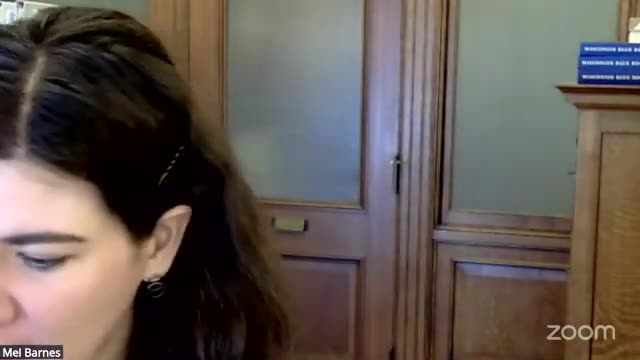Pardon advisory board hears two dozen applicants, then moves to closed session
Get AI-powered insights, summaries, and transcripts
Subscribe
Summary
The Wisconsin Pardon Advisory Board heard applications from about two dozen people seeking pardons on a range of nonviolent and drug-related convictions, including requests to restore voting and firearm-related rights. The board then moved into closed session to deliberate whether to forward applications to the governor.
MADISON, Wis. — The Wisconsin Pardon Advisory Board on Zoom heard from roughly two dozen applicants from across the state on Friday, as people with old drug, property and fleeing/ eluding convictions described sentences they served and what they said were rehabilitative steps since.
Board chair Mel Barnes, the governor's chief legal counsel, opened the hearing with procedural notes and told applicants the panel would review each file and that a majority of members present is required to forward any application to the governor. Barnes also told several applicants — and reiterated for the record — that "in Wisconsin, you are generally eligible to vote once you have completed your sentence," advice she said applicants should verify for their circumstances.
Applicants described a mix of brief county jail stints and longer prison terms, repeated contacts with the criminal justice system in earlier decades, and extensive post-sentence work or community service. Mary Sawyer, who described a 120-day Huber sentence for fleeing an officer, told the board she "hit rock bottom, but I held my head high and have tried to rise above." Ryan Stoltman, who said he panicked and fled police in 2011, described becoming a licensed foster parent and adopting two children since his conviction. Several other applicants said they sought pardons so they could travel, get certain jobs, advance at work, or regain gun rights for family hunting outings.
Some applicants reported formal institutional support: the board heard that a former district attorney's office had reviewed and supported at least one petitioner. For others, the board members asked follow-up questions about risk to the public, compliance with probation, and recent contacts with law enforcement.
Panel members pressed applicants about details the public record sometimes does not reflect. Judge Jeffrey Kremers, board member Noble Ray and others asked multiple applicants to explain earlier arrests and whether violent behavior was involved. Several applicants emphasized that their offenses were decades old and that they had steady employment, community involvement, or family responsibilities since.
The board heard a wide range of offenses in the public record: small-scale drug sales, felony marijuana possession, eluding a police officer while driving, arson and property damage, and a conviction for delivering contraband to an inmate. Applicants who said their primary reason for seeking a pardon was to be able to vote were told by the chair that they may already be eligible to vote under Wisconsin practice once their sentence and supervision are complete; the board did not offer legal advice but encouraged applicants to confirm their status.
After the public statements and board questions, the advisory board moved to closed session to deliberate the individual applications. The board used the statutory basis cited on the record (Wis. Stat. § 19.85(1)(a), (d), (f)) to support the closed deliberations. The motion to close the meeting passed by voice vote; the board noted that a majority was required to forward an application to the governor.
The board spelled out the next steps: it will deliberate in closed session and then make recommendations to the governor; applicants should expect an outcome in roughly a month to a month and a half.
